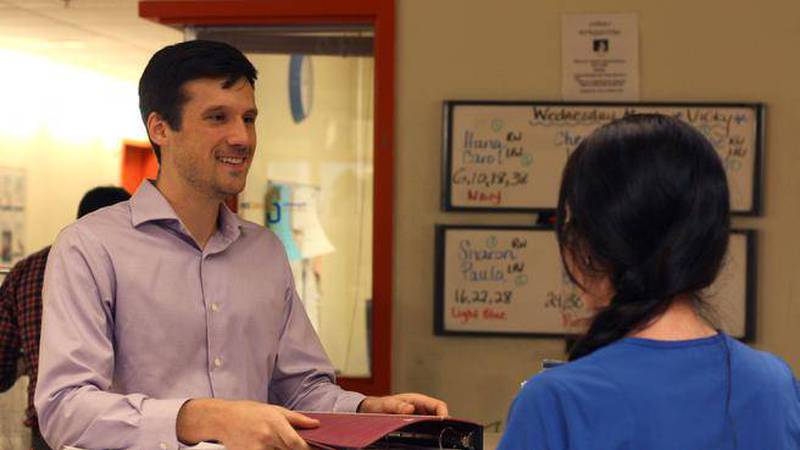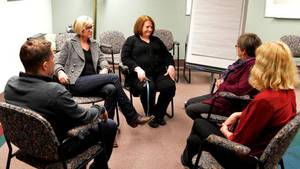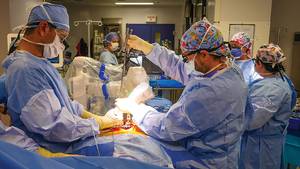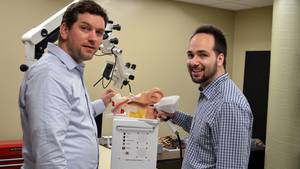Before studying medicine at Dalhousie University, Dr. Rob Lavers enjoyed the medical-related courses he took while studying for a Bachelor of Science in Kinesiology at St. Francis Xavier University. He knew he wanted to work in health care in some capacity. Growing up in a rural Nova Scotia community influenced his decision to become a doctor.
“I enjoyed being part of a tight-knit community when I grew up in Scotsburn, and I wanted to have a professional role where I would be able to be really involved in the community,” says Dr. Lavers. “I saw medicine as a great opportunity to do that.”
He entered Dalhousie University Medical School in 2011. As part of his training during his third and fourth years, he did rotations in internal medicine, surgery and anesthesia at the QEII.
“One of the biggest advantages of being a learner at the QEII is that it is such a well-established teaching hospital, and everyone you are working with, from the patients to the residents and staff physicians, are used to having learners from all different levels,” he says.
“They have a really good understanding of what your role should be as part of the healthcare team and what your level of knowledge should be. They are able to advance your learning at a challenging but appropriate pace.”
Dr. Lavers also appreciated the opportunity to get to know many of the patients and their families.
“You can build a relationship with patients while they are in the hospital, which enhances your learning experience, and I think they find it to be a positive part of their care.”
“You also meet a lot of the family members, especially during rotations in the geriatric assessment unit and palliative care. You get to know them pretty well and you try to support them through a difficult time while their loved one is in the hospital.”
Dr. Lavers has chosen to go into family medicine, particularly because he likes the scope of the practice and he wants to help fill the need for family doctors.
“You do everything from prenatal care to palliative care, working in the hospital or the emergency room, or assisting in the operating room, and that variety really appeals to me,” he says.
“The other big thing is the current needs in family medicine. I think that as physicians we are in a very privileged position, and it is our responsibility to pay attention and work toward the needs that are there in the healthcare system.”
Dr. Lavers says his experience as a learner at the QEII helped him get the full depth and breadth of training needed to become a family physician, as he worked with patients with different needs and from different communities across the province.
Over the next two years he completes his residency in Ontario, but plans to return to Nova Scotia. His parents, Cathy and David Lavers, still live on the farm where he grew up in Scotsburn.
“I haven’t decided where I will settle down, but I am definitely gearing my training towards a traditional-style family medicine practice, hopefully in Nova Scotia.”








